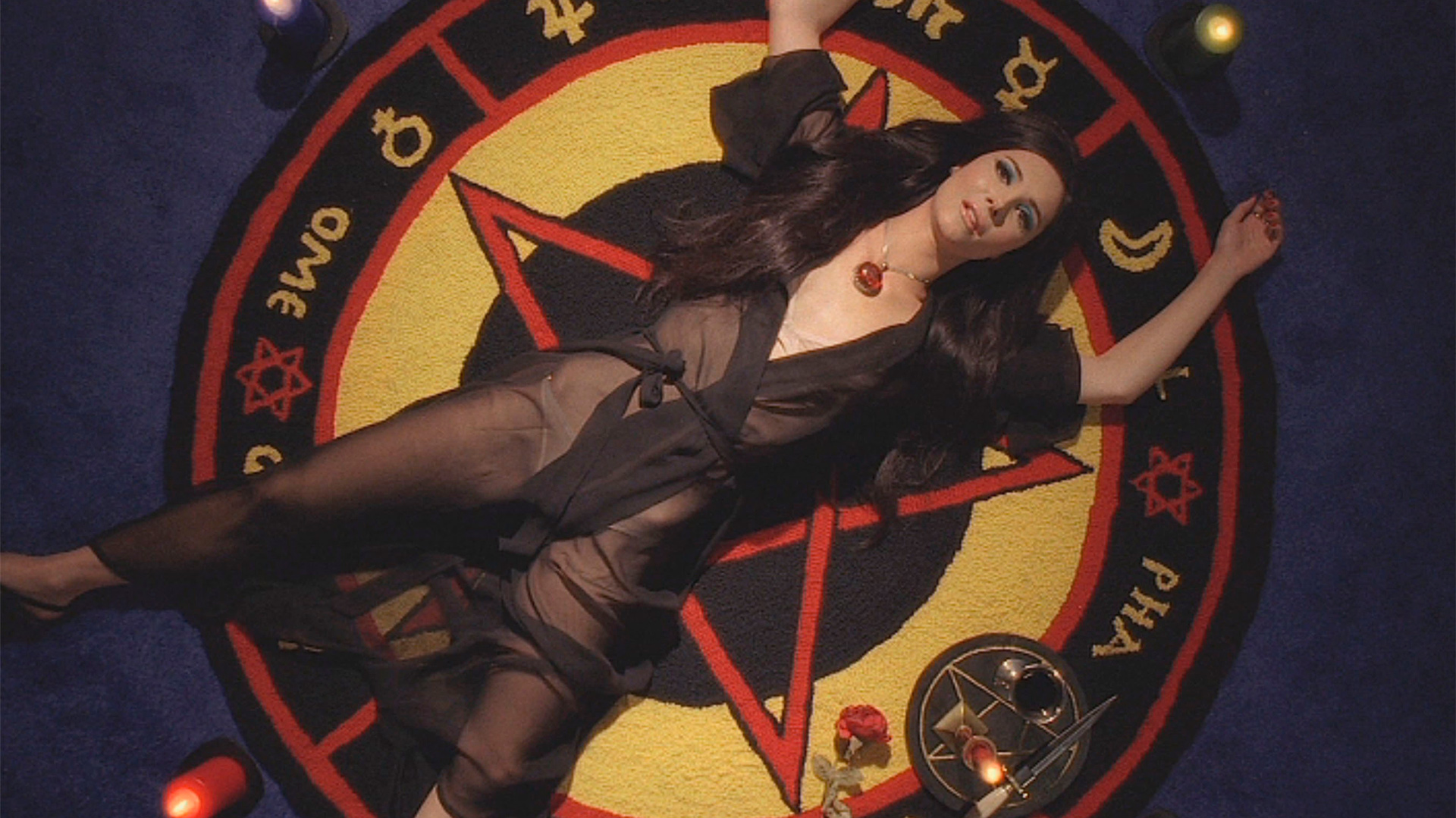
The Love Witch is a 2016 horror film directed by Anna Biller that follows the exploits of a young witch, Elaine, out to catch the man of her dreams, but ends up bulldozing the lives around her, even ending them. It’s a wonderful, campy movie, and like any good horror movie, it examines anxieties in society. What makes The Love Witch unique is its examination of women’s anxieties when it comes to love and dating. It’s an anxiety that hasn’t gone anywhere since at least the beginning of second-wave feminism, and though The Love Witch looks like an homage to nostalgia, its themes remain pertinent.
Elaine’s counterpart, realtor, and/or frenemy, Trish, is a happily married modern woman. Though Trish scoffs at Elaine’s retrograde beliefs about romance, like giving men whatever they want, she isn’t immune to Elaine’s charms. Not the literal witch charms she uses against men, but her well-tended prettiness, her vulnerability (both real and contrived), and even, to an extent, her ideas.
Despite women’s progress in civil rights and business, there’s still an allure to conforming to traditional romantic strictures. Think of all the Internet lists of what women do wrong on dates or the romantic advice books that provide tips like how long you should wait to call, when to put out, or what chivalrous behaviors men should display if they’re worth your time. Heterosexual dating and love remains mired in traditional gender roles, and even feminist women participate, sometimes enthusiastically and sometimes with resignation.
The Love Witch plays with the idea of the traditional, desirable woman. Elaine is rarely shown without perfect make-up, a dress and matching underwear, and a hairpiece that makes her long hair longer. She’s shown cooking for men, serving men, and listening sympathetically to men, even if his big, sad problem is not finding intelligent women attractive or attractive women intelligent. Elaine is wildly successful at seducing (almost) every man she wants, all who have the affections of another woman. She is the sexy woman that feminists are supposedly not, but Biller makes the work and anxiety around Elaine’s performance evident.
It’s natural to want to be desirable, and there’s a kind of urgency about it if you’re looking for a relationship. The desire to be desirable, though, is a weird mental place for feminists. Our cultural ideas about female sexiness are literally based on what we’re told heterosexual men want from women, which involves self-objectification and all the tedious vigilance that comes with it. Feminism hasn’t provided a replacement template for conventional sexiness for this very reason. But with only one way to understand heterosexual male attraction, we tend to use the default we’re given, especially when involved in the joy and terror of meeting new romantic prospects.
We’ve been lead to believe anything less than the woman Elaine projects is a compromise for heterosexual men, and even feminists want to be loved, or at least desired. There’s supposed to be some kind of feminine magic that we can tap into if only we try hard enough and believe in it. That’s the allure of women like Elaine to other women. So we do try, even if it’s an elaborate act, more of a trick than a personality. At one point in the film, even Trish tries.

Of course, The Love Witch wouldn’t be much of a horror movie, if Elaine successfully seduced a loving man and lived happily ever after. The body count stacks up because Elaine isn’t satisfied after her initial conquest. She despises the vulnerability she draws out of men, their neediness and desire to be loved and understood without bothering to see her as a person. One can see that Elaine can both desperately want men’s love and have contempt for them.
While Elaine’s feelings about men are complicated, the men in The Love Witch are not. The majority are easily manipulated doofuses. (To add to the horror, Biller said that many characters were inspired from life.) They all want Elaine or, more accurately, the fantasy of Elaine. None of them are particularly interesting, but their love is important to her.
Again, we’re presented with how traditional romance is supposed to work: through beauty, apparent subservience, and setting aside her own needs a woman draws men in. Once she has snared a man, a woman is finally complete. The man himself is interchangeable and easily swayed through fulfilling various appetites. The Love Witch shows Elaine’s dissatisfaction with this process, even if she won’t admit it. But before they bite it, the men aren’t happy either. It’s almost like man can’t live off of steak dinners, fantasy, and sex alone.
What makes The Love Witch effective is that it’s not some kind of morality tale, feminist or otherwise. I don’t get to tell you how there’s a core lesson about how feminism and romance should mesh or how they don’t. The dilemma of living in a sexist culture while looking for love isn’t something one person can fix. But, at the very least, The Love Witch shows that if you’re stuck in a place where attractiveness and being yourself feel mutually exclusive, you’re not alone, and it’s a problem. That’s somewhere to start.



